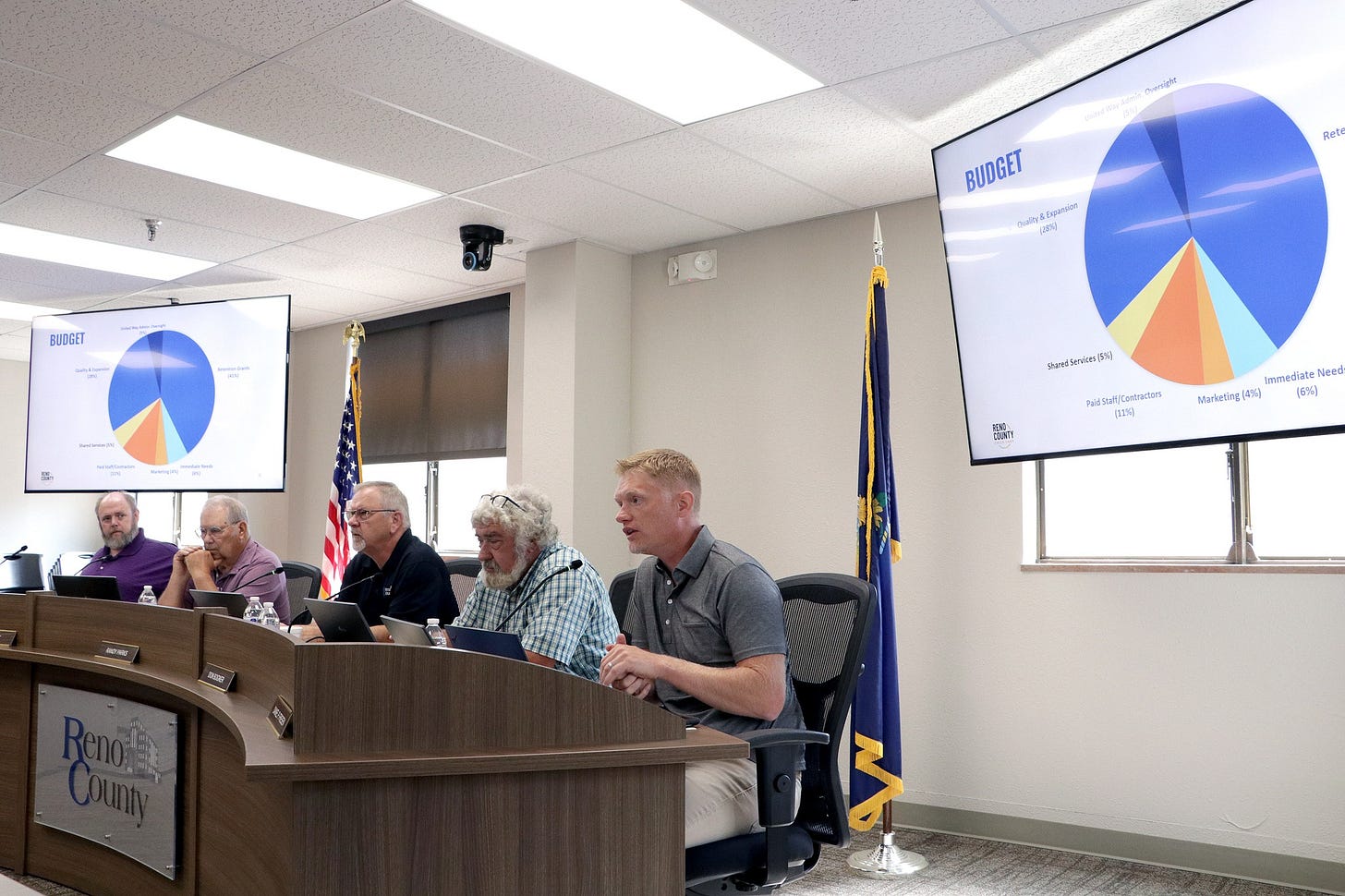Commission adopts new residency policy for department heads, discusses budgets

Recognizing life’s unpredictabilities, the Reno County Commission revised a residency policy during Wednesday’s meeting at the Reno County Courthouse, making the transition for new department heads easier.
Currently, all appointed directors are required to live inside Reno County and are allotted eight months to move if necessary; this policy, however, creates difficulties for candidates who face the task of relocation. Medical conditions, lease agreements and housing markets can all place qualified candidates outside of residency requirements under this system.
The proposed change would allow for exceptions to the relocation requirements and time constraints. Candidates may place formal requests for these exceptions, which must ultimately still be approved by the commission on a case-by-case basis.
“It’s just more to open that area up so that we’re not restricting who we can bring in as a department head, and giving a little more aptitude to the fact that there might be those nuances,” Helen Foster, the director of Reno County Human Resources, said. “I’d hate to not be able to hire someone just cause they live ten miles outside the county.”
While the motion passed in a 4-1 vote, Commissioner John Whitesel maintained a staunch view of the current policy. He noted that, in his experience, residency was the largest contributor to a person’s decision to leave a position.
“I think we’re setting ourselves up for losing good people if we don’t make them move to the areas,” he said. “If you set policies for the county, you oughta live under the policies you set.”
The commission also began discussions of budgets for the following year, navigating the difficult landscape of tax rates and inflation. While they did not establish the actual budget, the board did set a maximum mill levy for property taxes. Commissioner Don Bogner explained that this process would allow the commission to collect more data before crafting the final budget, which will likely be below the maximum.
“What we’re really doing is buying time,” Bogner said.
Whitesel again was the sole dissenting opinion, this time in approving the intent to exceed the revenue neutral rate and establish the maximum mill levy budget, which passed in a 4-1 vote. He noted that a flat mill levy still correlates to an increase in tax rates due to the increase in property rates.
“On your property, you’re going to pay more every month than you did the previous year under this plan,” Whitesel said.
In the commissioners’ closing comments, they recollected on the holiday weekend and local pride. Commissioner Ron Hirst was particularly impressed with the organization and effort behind community Fourth of July celebrations.
“Community involvement is still alive here in Reno County,” Hirst said.
For further local involvement, the commissioners encouraged residents to attend the public hearing on solar energy, which will take place on July 29 at 5:30 p.m. The hearing will examine private and large-scale solar in the zoned areas. A separate meeting will investigate renewable energy and various other concerns for the county’s unzoned areas.
Chairman Randy Parks also hinted that the community could be nationally acknowledged in the near future by partnering with an organization that works to grow counties. Population rates have been a continuous concern for Reno County, and Parks suggested this partnership may be a way to facilitate growth.
“It could be a very huge stage for Reno County to be on,” he said.
The next commission meeting will be held on Wednesday, July 24 at 9 a.m. in the Veterans Room at the Reno County Courthouse.





